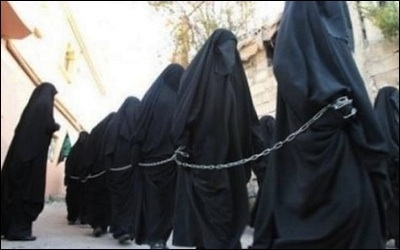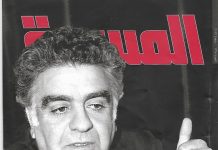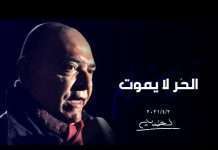In Light Of Jordanians Joining Terrorist Organizations, Calls In Jordan To Reform Curricula
By: Z. Harel*/MEMRI
Reform in the Muslim World
December 14, 2015 Inquiry & Analysis Series Report No.1211
Introduction
An issue that concerns Jordanian society lately is the phenomenon of young Jordanians joining the terrorist organizations that are fighting in Syria and Iraq, especially the Islamic State (ISIS). In October, it was reported that the son of Jordanian MP Mazen Al-Dhalaein had carried out a suicide bombing in Syria after leaving medical school and joining ISIS.[1] In November, the media reported on two further cases: a young woman in her twenties who tried to join the organization but was caught by the authorities in Turkey and returned to Jordan,[2] and a young Jordanian who joined ISIS and later defected and came back home.[3] According to unofficial statistics, about 4,000 young Jordanians have so far joined the armed organizations in Syria and Iraq, a figure that places Jordan second only to Tunisia in the number of citizens who have joined these organizations.[4]
As a result, in the recent year, Jordanian op-eds, especially in the independent daily Al-Ghad, have dealt extensively with the possible roots of the phenomenon, asking what makes young Jordanians susceptible to extremist ideology, and stressing in particular the role of the Jordanian education system in this. Articles called to reform the education system and the curricula, arguing that the curricula repress all freedom of thought and creativity, and, even worse, promote extremism and hatred toward the other.
Recently, following the November 13, 2015 terror attack in Paris, criticism in the Jordanian press became even more forceful, with many articles stressing that the struggle against terrorism cannot be waged on the security level alone, but must also involve educational reform. The articles advocated purging the school curricula of ideas that aggrandize death, promote extremism and accuse others of heresy.
In light of the unprecedented level of criticism, the Jordanian ministry of education was forced to respond. It did not deny that the curricula were flawed and clarified that it is currently in the process of amending and reforming them.
The following are translated excerpts from some of the critical articles and from responses by the education ministry and its spokesmen.
From article on Jordanian website titled “The Jordanian Curricula: Do They Contribute to Creating an Extremist Generation?” (Raseef22.com, July 15, 2015)
Former Jordanian Culture Minister: Curricula Must Be Purged Of Ideas That Glorify Death
In an article he published on November 15, 2015, Jordan’s former minister of culture, Sabri Rbeihat, called on Arab society to recognize that terrorism begins with a culture that celebrates death and despises life, and to review the educational and cultural infrastructure in the Arab world in order to understand what drives young people into the arms of the terrorist organizations. He wrote: “Many researchers and analysts are preoccupied with identifying the perpetrators of the attack – their names, their plans, how long the planning took, what elements assisted them, or who failed in their duty to prevent what happened. Many politicians ignore the fact that the problem today lies in the emergence of a new culture that hates life, celebrates death, and attacks and quickly eliminates anything symbolizing liberty, life, and happiness.
“[All] terrorist attacks – those in the past, the Paris attack…, and also all future attacksare preceded by a preparatory stage that includes recruitment, training, and education and sows motivation in the hearts of the perpetrators, provides justification, and gives them skills and tactical abilities to carry out [the attacks].
“The questions we must first and foremost ask ourselves and our societies are: What drives young people to join these organizations? What pretexts do the sheikhs and guides [of these groups] use to uproot mercy and humanity from their hearts? What ideology do they use to justify killing, intimidation, and destruction? And what justifications do they use to make expressions of life and joy the main targets of terrorism, murder, and destruction?
“A definition of terrorism and terrorists as military targets to be bombed by jets and cannon is limited; adhering to [this definition] will not accomplish the goal. [Conversely,] persecuting young people who expressed themselves one way or another, and putting them on trial, is not enough to uproot the motivation [to carry out terrorist attacks] – and could even increase it.
“We must all take a close look at our educational, administrative, political, and cultural reality, in an attempt to track the causes of marginalization and exclusion; we must channel reform programs toward increasing inclusion and providing opportunities, towards overcoming discrimination, towards institutionalizing accountability, and towards purging curricula of ideas that denigrate life, aggrandize death, and accuse others of heresy.”[5]
Jordanian Educator: Our Education Incites To Hatred And Violence; We Must Declare An Educational And Cultural State Of Emergency
In an article titled “What will become of you, Oh education” in the independent daily Al-Ghad, Jordanian writer and educator Zuleikha Abu Risha slammed the education system in the country for repressing creative thinking, accusing others of heresy, and inciting to hatred, violence and murder, and rebuked the education ministry for dragging its feet in reforming the curricula and textbooks. She wrote: “I have been writing in newspapers for nearly half a century, and I have been involved in education for nearly 30 years, and I still follow it, one way or another. I can attest that [never] in Jordan’s history has the educational and cultural community awakened, discussed, analyzed, condemned, convened, and demanded to change the pathetic curricula and the even more pathetic textbooks as it has in recent months.
“A look at social media, daily newspapers, opinion columns, and statements by expert analysts [should] cause any official who has [so far] shut his ears to [wake up and] hear the blaring warning bell and declare a cultural and educational state of emergency. The fire is at our doorstep; terrorism surrounds us and knocks at our door… The poisoned Islamist tree, planted in the 1960s, has borne fruit – in the form of an educational system that opposes creativity and asking questions, sanctifies the past, does not deviate from its [rigid] path, detests logic and anything new or innovative, levels accusations of heresy, and incites to hatred, violence, and killing – to the point where students have become robots who recite prayers to keep themselves from harm, instead of investing efforts in finding solutions. [According to this approach,] the solution is found in the words of the illiterate preacher, the politically-motivated teacher, and the principal who deals with [questions of] what is religiously allowed and forbidden.”
“The mosques whose imams and preachers curse the Christians, accuse of heresy anyone who congratulates [Christians] on their holidays, and are glad when any of them are killed in Arab or Western countries – [these mosques] have remained the same for half a century and longer. Facebook is full of [people who] congratulate [each other] and gloat over those killed in what they call ‘the raid on Paris.’ There is hatred towards the Shi’ites, and the positions of Iran and Hizbullah are attributed to the entire Shi’ite sect. Mourning tents are erected for ISIS murderers and suicide bombers where people applaud and honor them. Islamic billboards hung along the roads and on electricity poles preach not a single noble quality or constructive value. Government hospitals are so full of Islamic posters and symbols that one feels as though one is in a Muslim Brotherhood mosque rather than a hospital. Private schools teach children to pray day and night, before [teaching them] to use their brains and challenge their thinking. Girls are taught that, in their brothers’ absence, their voices, their bodies and their very presence are a form of shameful nudity. Hatred for other religions is perceived as a foundation of the Islamic faith. The concepts of homeland, nation and citizenship are uprooted and the concepts of faith and the Islamic ummah are inculcated in their stead. The Arab national identity is expunged in favor of a despicable and phony religious identity [based on] the culturally-depleted Islam. [Given all this,] why is the education ministry delaying in declaring a state of emergency? [Why isn’t it] calling upon the educational community to fulfill its duty in restoring the cracked educational edifice, before some brainwashed and conscience-less ISIS member comes along and blows it up with everyone in it?! Allow us not to lose hope, even though hope has apparently already died of the thousands of diseases that afflict it.”[6]
‘Al-Dustour’ Columnist: We Need An Educational Vaccine Against The Virus Of Extremism
In a November 16, 2015 article, Khairi Mansour, a columnist for Al-Dustour, compared extremism to a virus and expressed hope that the education system might inoculate students against it. He wrote: “Had the world realized that the virus of extremism is resistant to the conditions of all eras, it would have invented an educational vaccination for it… The antidote for extremism, violence, and the culture of neglect and mutual exclusion is, first and foremost, educational ideas that are instilled in the soul and mind through curricula, education at home, and methods for teaching little children.
“After all this bloodshed, from Asia to Africa through America and Europe, we are entitled to ask where the education against extremism is, and in which books and on what satellite channels [it appears]. Books rife with incitement fill the sidewalks and kiosks, and some satellite channels have become war rooms filled to the brim with inciters of hatred, vengeance, and resistance to all forms of coexistence among people from different cultures and ideologies.
“May the experts and scientists preaching civil peace discover an educational vaccination that does not leave a mark on the arm but that instead spreads throughout the mind and the blood, as a defense against the poison of extremism.”[7]
‘Al-Rai’ Columnist: The Security Approach To Combating Terror Is No Longer Relevant; Investment In Education Is Needed
Roman Haddad, a regular columnist for the government daily Al-Rai, wrote on November 15, 2015: “The terrorist attacks that took place over the past two weeks in the region and the world, starting with the bombing of the Russian airliner over Sinai in Egypt, and ending with the series of bloody attacks on Friday night in Paris – which could even spread to other locations around the globe – clearly indicate that the security approach [to combating] terrorism is no longer relevant. Countries are investing fortunes in traditional security measures while their investment in social and ideological security are still far from the desired levels…
“In Jordan, King ‘Abdallah II has repeatedly spoken of an ideological war against the extremism rampant in the region, stressing the importance of this war in drying up the sources of potential recruits for terrorist organizations… The ministry of education and the universities have a very important [role to play] in these struggles through the official curricula and through the function of the teacher and his impact on the methods of dealing with the minds of our children and youth. [There is need to] strengthen the students by giving them knowledge about concepts such as ‘state,’ ‘society,’ and ‘constitutional institutions’, developing tools of thought and instilling a sense of belonging in our students…
“It is vital to strengthen the students, because it is young people who have become pawns for the terrorist organizations to toy with by distorting the religious texts in the name of their so-called jihad.”[8]
Independent Daily ‘Al-Ghad’ Leading Yearlong Calls To Change School Curricula
As said, the debate regarding extremism in school curricula, and the calls for educational reform, have intensified recently, but this debate has been ongoing, especially in the press, for about a year. Especially prominent in this context is the independent daily Al-Ghad, which dealt extensively with education and published many articles and columns – by both regular columnists and educators – stressing the need to change school curricula. The following are excerpts from some Al-Ghad articles published in the past year:
‘Al-Ghad’ Editor-In-Chief: Children Come Home From School With Ideas That Shock Their Parents
On December 14, 2014, Al-Ghad editor-in-chief Jumana Ghunaimat published an article titled “Close The Jordanian Branch Of ISIS!,” in which she wrote: “A fifth-grade pupil in a government school in ‘Amman came home with new knowledge based on accusing the members of other monotheistic faiths of heresy, which shocked his father. The father did his best to convince his son [to think] differently from what he had been taught by his teacher, who tries to sow ideas in the minds of our young children that lead to non-acceptance of the other and to challenging the principle of coexistence rooted in Jordanian society.
“Another story comes from Wadi Arabah, where a gym teacher also fulfills the role of a preacher – [instilling] not positive messages but rather the opposite. Instead of using her time to release the students’ energy, she tries to fill their young minds with worrisome ideas.
“What takes place in our schools is grave because it leads to a change in the authentic [character] of society, which is based on tolerance, peace, moderation, and the middle way. This change – if not dealt with – could afflict us with a harsh reality for which we will all pay the price…
“The education ministry, which has noticed this situation, began tracking the distortions and trying to deal with them, first by directing attention [to the problem] and sending official letters forbidding teachers to deviate from the curriculum. The ministry is also taking additional steps to limit the spread of certain streams, which spread their ideas to our children. For example, it has begun amending the curricula in Islamic education and Arabic language studies in grades 1 through 3, focusing on one main purpose, namely teaching them to read and write, after it became known that some 130,000 of them are illiterate. Furthermore, it has begun formulating curricula meant to reinforce basic values in our children, especially values of respecting and accepting the other…
“Our schools spread extremism, as do our universities. Sometimes, a child or youth returns from school or university with horrid ideas that shock even his parents. This price, which is paid by all, is the result of religious thought taking over the curricula for decades, placing future generations in peril. Complaints against the curricula are old. They are already being dealt with, and we hope [the efforts] will achieve the necessary result so that our sons will have curricula that encourage creative thought in place of rote learning. Since this problem has grown ever more widespread and complex, the solution seems to be too difficult, but we must [nevertheless] start so as not to leave future generations hostages to a narrow group of people who swallow our children and use them as tools in the hands of extremist streams… Using education above all, we will thwart the extremism that infiltrates our [society] to a dangerous degree. Since the war on terror is our war, we will best deal with it internally, starting with our schools.”[9]
‘Al-Ghad’ Publishes Study By Educational Expert: ISIS-Like Ideology In The Curricula
On June 30, 2015, as part of its investigation of school curricula, Al-Ghad published a lengthy study by educational expert Dr. Dhuqan ‘Ubaidat titled “ISISism In Curricula and Textbooks” that outlines the many problems of Jordanian curricula, specifically their extremist content. Dr. ‘Ubaidat said that the purpose of the study was to expose common trends and values in curricula and textbooks, such as extremism and disrespect for and non-recognition of the other. He examined all Arabic language, Islamic education, and civics textbooks, as well as the high-school textbook on culture, presenting numerous citations from specific pages in the textbooks.
As part of his conclusions, ‘Ubaidat claimed that the curricula do not enable free, critical, or creative thought, and that religious culture is highly dominant in the textbooks, not just those for Islamic education but for other subjects as well. He also said that “ISIS-like thought” – which he characterizes as “a lack of critical or creative thinking; a lack of beauty, truth, goodness and optimism, and a lack of emotion, love, poetry, and music” – is very is widespread in civics, Arabic language, and Islamic education textbooks. For example, one textbook “attacks science, claiming that it drives a person away from religion and faith.” He also cited textbooks that attack philosophy and “present the positions of famous and esteemed philosophers such as [Immanuel] Kant and Rene Descartes as foolish.”
He also claimed that jihad studies continue throughout the schooling years, and that Islamic education textbooks portray jihad as an individual duty (fard ‘ayn), and state that “it is forbidden for anyone to interfere with jihad unless they have a real reason to do so” and that “Allah promises that the jihad fighter will either return home or reach Paradise.” He added that textbooks state that a woman “should be obedient to the man… She must not leave the home without permission… and the man is allowed to scold her.”
In addition, he pointed to a certain textbook, which the education ministry claims includes chapters on the Jordanian state and its institutions as well as on human development, and democracy, communications, etc. – but in fact none of these topics appear in it.[10]
‘Al-Ghad’ Article: The Curricula Is Monopolized By Islamists, But We Have A Right To Participate In Outlining Our Children’s Future
On July 5, 2015, several days after the study was published, the Islamic Action Front – the political arm of the Jordanian Muslim Brotherhood – issued a statement regarding the growing public debate about Islamic content in school curricula, while condemning “the secular campaign that does injustice to the curricula and is funded by foreign money in an attempt to uproot the values of Islam from Jordanian society under the pretext of combating extremism and terrorism.”[11]
In response to this statement, journalist Majed Toba published an article on July 5 stating: “The Islamic Action Front party did not stay silent for long after the recent publication of several respectable scientific studies and articles on the curricula and their serious flaws, which contribute to the emergence of ideological and political extremism and to human and cultural closemindedness…
“The Islamic Action Front party spoke in its statement of an effort to ‘secularize the curricula’… and accused the respectable studies and opinions of trying to distance Islamic cultural values from the curricula under the pretext of combating extremism and terrorism. The main question to the party is: Do we agree on the definition of the cultural values of Islam? And do you agree with the definition of Islam’s cultural values as understood by ISIS, [Jabhat] Al-Nusra, or Al-Qaeda, which have revived the notions of taking slaves, of dhimma, and of levelling the jizya [poll tax] on fellow citizens, fellow Arabs and fellow human beings?…
“The [existing] curricula and textbooks are the result of the Islamic stream and its conservative allies taking over the education and culture ministry since the 1970s and excluding all representatives of other streams from planning educational activity and formulating curricula. Excluding the Islamists from the political map is unacceptable, [but it is] just as unacceptable for the Islamic stream to exclude other political and ideological streams. The problem with the curricula… is that their preparation did not involve true social, ideological, and political inclusion, and remained monopolized by a single stream. Therefore, it is only predictable that this stream is now defending this monopoly vehemently, but it is also our right to demand partnership in planning the future of our children and of society.”[12]
Emblem of the Jordanian Ministry of Education
The Jordanian Education Ministry Responds: A Curriculum Reform Is Underway
Given the unprecedented criticism voiced in numerous Jordanian press articles over the past year, and more forcefully since last November’s terror attacks in Paris, the education ministry was compelled to respond. It rejected some of the criticism directed against it, but also claimed that it was currently engaged in identifying flaws in the curriculum and correcting them. For example, on July 7, 2015, the Jordanian education ministry’s curriculum and textbook department published in Al-Ghad a response Dr. ‘Ubaidat’s study. It claimed that the study “lacked objectivity” because it cherry-picked terms from the textbooks and took them out of context. The department called upon Dr. ‘Ubaidat to visit its offices and present his claims to it. The department also noted that it was currently engaged in a project to develop the curricula, which would conclude within two years. It clarified: “[We] have begun reformulating the social sciences curricula in conformity with the principles of the constitution, which guarantees freedom of expression and political pluralism… On this basis, the committees for formulating and supervising [the curricula] were instructed to focus, in the framework of the new curricula, on concepts of good citizenship; tolerance, unity and equality in society and equality of rights and duties among citizens; respect for the opinion of others, and pluralism.” The department noted further that the civics textbooks for grades 8 and 10 already incorporate study units that discuss these values.[13]
On December 10, 2015, Dr. Fayez Al-Rabi’, chairman of the education ministry’s committee for curriculum development in civics and national education, who also writes for Al-Rai, responded to the criticism in an article of his own. He too emphasized that the ministry was engaged in amending the curricula: “We in Jordan mean to undertake a new and comprehensive examination of all the curricula, including in the humanities: Islamic education, history, civics and national education, Arabic, arts, geography, etc. Let me note that removing all the flaws from the curricula does not mean renouncing our values and our tolerant faith; on the contrary, it is necessary to focus on positive values and principles that will address the roots of ideological and religious extremism, and to fortify these values so as to provide an alternative to the negative ideas and tendencies that have no connection with the essence of [the Muslim] religion and its tolerant values…”
Al-Rabi’ listed subjects to be added to the civics curriculum for the various grade-levels, and changes to be made in other humanistic subjects. He also argued that it is not enough to reform the curricula in Jordan, calling on the education ministers of the Organization of Islamic Cooperation (OIC) countries to convene and form an experts committee to examine the curricula in all the member states and submit recommendations on the topic.[14]
*Z. Harel is a research fellow at MEMRI.
Endnotes:
[1] Raialyoum.com, October 2, 2015.
[2] Al-Ghad (Jordan), November 5, 2015.
[3] Al-Rai (Jordan), November 11, 2015.
[4] This statistic appeared in a November 18, 2015 article by columnist Ramadan Al-Rawashdeh in the government daily Al-Rai.
[5] Al-Ghad (Jordan), November 15, 2015.
[6] Al-Ghad (Jordan), November 17, 2015.
[7] Al-Dustour (Jordan), November 16, 2015.
[8] Al-Rai (Jordan), November 15, 2015.
[9] Al-Ghad (Jordan), December 14, 2014.
[10] Al-Ghad (Jordan), June 30, 2015.
[11] Jabha.info, July 5, 2015.
[12] Al-Ghad (Jordan), July 5, 2015.
[13] Al-Ghad (Jordan) July 7, 2015.
[14] Al-Rai (Jordan) December 10, 2015.





















